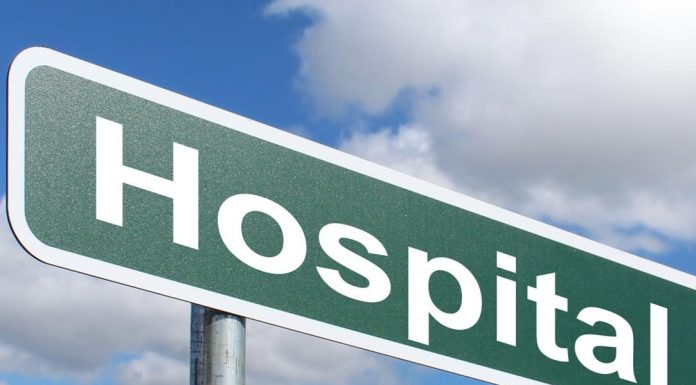(Nashville Public Radio) Kyle Kopec gets a kick out of leading tours through the run-down hospitals his boss is snapping up, pointing out what he calls relics of poor management left by a revolving door of operators. But there’s a point to exposing their state of disrepair — the company he works for, Braden Health, is buying buildings worth millions of dollars for next to nothing.
At a hospital in this rural community about a 90-minute drive northwest from Nashville, the X-ray machine is beyond repair.
“This system is so old, it’s been using a floppy disk,” said Kopec, 23, marveling at the bendy black square that hardly has enough memory to hold a single digital photo. “I’ve never actually seen a floppy disk in use. I’ve seen them in the Smithsonian.”
Not only is Kopec young, he had limited work experience in hospitals before helping lead a buying spree by Braden Health. His prior work experience includes a three-month stint as an intern in the Trump White House, on assignment through his volunteer position in the U.S. Coast Guard Auxiliary. He worked his way through college at Braden Health’s clinic in Ave Maria, Florida, and became a protégé of Dr. Beau Braden, the company’s founder. Now Kopec’s official title is chief compliance officer, second in command to Braden.
The hospitals Braden Health is taking over sit in one of the worst spots in one of the worst states for rural hospital closures. Tennessee has experienced 16 closures since 2010 — second only to the far more populous state of Texas, which has had at least 21 closures.
The local governments that own these facilities are finding that remarkably few companies — with any level of experience — are interested in buying them. And those that are willing don’t want to pay much, if anything.
“When you’re on the ropes or even got your head under water, it’s really difficult to negotiate with any terms of strength,” said Michael Topchik, director of the Chartis Center for Rural Health, which tracks distressed rural hospitals closely. “And so you, oftentimes, are choosing whoever is willing to choose you.”
At this point, large health systems have acquired or affiliated with the hospitals that have the fewest problems, Topchik said. And what’s left has been picked over by operators, some of which have gotten in trouble with insurers and even law enforcement for shady billing practices.
“You can make it profitable,” Topchik said. “But it takes an awful lot to get there.”
Braden, an emergency room doctor and addiction specialist, used his savings and inherited wealth to get into the hospital-buying business in 2020. Previously, he tried to build a hospital in southwestern Florida, where he owns the large rural clinic in Ave Maria. After running into regulatory roadblocks, he saw more opportunity in reopening hospitals — which brought him to Tennessee.
Braden Health’s corporate headquarters has 40 employees, according to Kopec. It’s a limited liability company and privately held, so it doesn’t have to publicly share much about its financial figures….
Communities have seen unqualified managers come and go. In Decatur County, where Braden Health is also taking over the local hospital, the previous CEO was indicted on theft charges that remain pending. And the Tennessee comptroller determined the hospital helped endanger the finances of the entire county.
“You’re looking to someone who supposedly knows what to do, who can supposedly solve the issue. And you trust them, then you’re disappointed,” said Lori Brasher, a member of Decatur County’s economic development board. “And not disappointed once, but disappointed multiple times.”
Brasher expressed much more confidence in Braden Health, which she said has concrete plans to reopen, though the timing has been delayed by an unresolved insurance claim from a burst water line that flooded a wing of the hospital.
Local residents still have trouble stomaching the sticker price: $100 for a property valued at $1.4 million by the local tax assessor. In addition to that low price, Braden Health won tax breaks for committing to invest $2 million into the building.
The Houston County hospital is valued at $4.1 million by the property assessor. But the final sale price was just $20,000 — and that wasn’t for the land or the building. Kopec said the amount was for a 2016 ambulance with 180,000 miles — deemed the only equipment with any remaining value.



